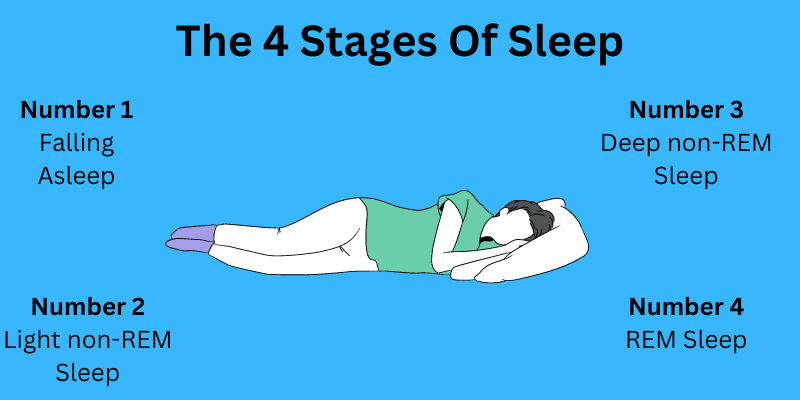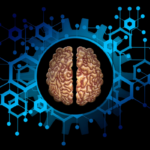The Connection Between Sleep and Memory

What is the connection between sleep and memory? Sleep plays a vital role in many bodily functions, including memory consolidation. Memory consolidation is the process of converting short-term memories into long-term memories, and sleep is an essential factor in this process. In this article, we will explore the connection between sleep and memory and how sleep affects our ability to learn and remember.
What is memory consolidation?
Memory consolidation is the process by which our brains convert short-term memories into long-term memories. It is the process of strengthening and stabilizing a memory trace after the initial acquisition of information. This process involves various mechanisms such as the reorganization of neural connections, the synthesis of new proteins, and the formation of new synaptic connections in the brain.
Memory consolidation occurs during sleep, particularly during deep NREM (non-rapid eye movement) sleep and REM (rapid eye movement) sleep, as well as during waking hours through a process called wake-dependent consolidation. The more effective the consolidation process, the more likely the memory will be retained for long-term use.
The different types of memory
There are several different types of memory that our brains use to store and retrieve information:
- Sensory Memory: This type of memory is very brief, lasting only a few seconds at most. It is responsible for holding onto sensory information that we receive from the environment, such as the sight of a beautiful sunset or the sound of a bird singing.
- Short-term Memory: Also known as working memory, this type of memory is responsible for holding onto information for brief periods of time, typically a few seconds to a minute. It is used to manipulate and process information that we are actively thinking about or using, such as remembering a phone number.
- Long-term Memory: This type of memory is used to store information for longer periods of time, ranging from days to years. Long-term memory can be further broken down into two categories:
- Explicit Memory: This refers to memories that we can consciously recall, such as the name of a childhood friend or a favorite restaurant.
- Implicit Memory: This refers to memories that are unconsciously formed and influence our behavior, such as how to ride a bike or type on a keyboard.
- Episodic Memory: This type of memory is used to store information about specific events and experiences, such as a family vacation or a first date.
- Semantic Memory: This type of memory is used to store general knowledge and facts, such as the capital of a country or the definition of a word.
- Procedural Memory: This type of memory is used to store information about how to perform certain skills and activities, such as playing a musical instrument or riding a bike.
Understanding these different types of memory can help us better understand how our brains store and retrieve information, and can also help us develop strategies for improving memory and cognition.
Click here to discover the simplest way to maintain a steel trap memory with Neurodrine.
The stages of sleep

Sleep is divided into two main stages: rapid eye movement (REM) sleep and non-rapid eye movement (NREM) sleep. NREM sleep is further divided into three stages: N1, N2, and N3.
During N1 sleep, which occurs when we first fall asleep, our brain waves begin to slow down, and we may experience fleeting thoughts and images. N2 sleep is characterized by a decrease in body temperature and heart rate, and our brain waves begin to produce sleep spindles, which are brief bursts of brain activity.
N3 sleep, also known as deep sleep, is the stage of sleep in which we are most difficult to wake up. Our brain waves slow down even further, and our body temperature and heart rate reach their lowest levels.
REM sleep occurs approximately 90 minutes after we fall asleep and is characterized by rapid eye movements, vivid dreaming, and a temporary paralysis of the muscles.
How sleep affects memory consolidation
Sleep plays a crucial role in memory consolidation, particularly in the transfer of information from short-term to long-term memory. During sleep, the brain processes and consolidates the memories formed during the day, allowing for the strengthening and integration of new memories with existing knowledge.
Research suggests that sleep facilitates the consolidation of declarative memories, which are memories of facts and events, through a process called system consolidation. During sleep, memories are transferred from the hippocampus, where they are initially encoded, to the neocortex, where they are integrated with existing knowledge and memories.
Slow-wave sleep, also known as deep NREM sleep, is particularly important for the consolidation of declarative memories, as it is associated with the reactivation and strengthening of memories.
In addition, REM sleep, which is characterized by rapid eye movements and vivid dreams, has been shown to play a role in the consolidation of procedural memories, which are memories of how to perform specific tasks and skills. REM sleep is thought to enhance the learning of motor skills and improve procedural memory consolidation.
Overall, sleep is essential for effective memory consolidation, and getting enough high-quality sleep is crucial for maintaining optimal cognitive function and memory retention.
Sleep deprivation and its impact on memory
Sleep deprivation can have a significant impact on memory, particularly on the ability to consolidate and retrieve memories. When we don’t get enough sleep, the brain is unable to properly process and consolidate the memories formed during the day, which can lead to forgetfulness and difficulty retaining new information.
Research suggests that sleep deprivation can impair declarative memory consolidation, particularly for complex and emotionally charged memories. In addition, sleep deprivation has been shown to affect working memory, which is responsible for holding onto and manipulating information in the short-term. This can lead to difficulties with attention, decision-making, and problem-solving.
Furthermore, chronic sleep deprivation can have long-term effects on memory function and cognitive performance. Studies have shown that individuals who consistently get less than the recommended amount of sleep over extended periods of time may experience structural changes in the brain, particularly in areas associated with memory and learning.
Overall, it is important to prioritize getting enough high-quality sleep in order to maintain optimal cognitive function and memory retention. This can be achieved through practicing good sleep hygiene, such as sticking to a consistent sleep schedule, creating a relaxing sleep environment, and avoiding caffeine and alcohol before bed.
Click here to discover the simplest way to maintain a steel trap memory with Neurodrine.
The impact of dreams on memory consolidation

The impact of dreams on memory consolidation is a topic that has fascinated scientists and researchers for decades. Dreams are thought to play a role in memory consolidation by allowing the brain to process and integrate new memories with existing knowledge and experiences. During REM sleep, which is characterized by rapid eye movements and vivid dreaming, the brain is highly active and engaged in memory processing and consolidation.
Research suggests that dreams may help to consolidate and strengthen memories by allowing the brain to replay and reinforce the neural connections formed during wakefulness. Dreams may also help to filter and organize memories, allowing the brain to prioritize important information and discard irrelevant or redundant details.
In addition, studies have shown that the emotional content of dreams can have an impact on memory consolidation. Emotional experiences are often more strongly encoded and remembered than neutral experiences, and dreams may allow the brain to process and integrate emotional memories in a more effective way.
Overall, the impact of dreams on memory consolidation is a complex and fascinating topic that continues to be studied by researchers in the field of neuroscience. While more research is needed to fully understand the mechanisms underlying the relationship between dreams and memory, it is clear that sleep and dreaming play an important role in memory consolidation and cognitive function.
Tips for improving memory consolidation during sleep
Memory consolidation during sleep is an important process for retaining and integrating new information into long-term memory. If you’re looking to improve your memory consolidation during sleep, here are some tips that may help:
- Get enough sleep: Adequate sleep is essential for optimal memory consolidation. Aim for 7-9 hours of high-quality sleep each night to give your brain the time it needs to process and consolidate memories.
- Stick to a consistent sleep schedule: Going to bed and waking up at the same time every day can help to regulate your body’s internal clock and improve the quality of your sleep.
- Create a relaxing sleep environment: Make sure your bedroom is cool, dark, and quiet, and consider using comfortable bedding and pillows to help you relax and sleep more soundly.
- Avoid caffeine and alcohol before bed: Caffeine and alcohol can disrupt sleep and interfere with memory consolidation, so it’s best to avoid consuming these substances in the hours leading up to bedtime.
- Practice relaxation techniques: Meditation, deep breathing, and other relaxation techniques can help to reduce stress and improve sleep quality, which in turn can enhance memory consolidation.
- Exercise regularly: Regular exercise has been shown to improve memory function and cognitive performance, so try to incorporate physical activity into your daily routine.
- Take breaks to rest and recharge: Taking short breaks throughout the day to rest and recharge can help to reduce fatigue and improve cognitive function, which can in turn enhance memory consolidation during sleep.
By following these tips and practicing good sleep hygiene, you can help to optimize your memory consolidation during sleep and improve your overall cognitive function and performance.
The relationship between sleep quality and memory
The relationship between sleep quality and memory is a complex and multifaceted one. While it is well established that sleep is essential for memory consolidation and retention, the quality of sleep can have a significant impact on the effectiveness of this process.
Studies have shown that people who experience disrupted or fragmented sleep may have more difficulty with memory consolidation and retention, as well as other cognitive functions such as attention and decision-making. This is because sleep disruptions can interfere with the brain’s ability to transition between different stages of sleep, which can in turn impact the consolidation of memories.
In addition, certain sleep disorders such as sleep apnea and insomnia have been shown to have a negative impact on memory function. Sleep apnea, for example, can lead to intermittent pauses in breathing during sleep, which can cause frequent awakenings and interruptions in the sleep cycle. Insomnia, on the other hand, can make it difficult to fall asleep or stay asleep, leading to fragmented or insufficient sleep.
On the other hand, high-quality sleep has been associated with improved memory consolidation and cognitive function. Deep, restorative sleep that is uninterrupted and of sufficient duration is essential for allowing the brain to process and integrate new memories with existing knowledge and experiences.
Overall, the relationship between sleep quality and memory is a complex one that is influenced by a variety of factors, including sleep duration, sleep disruptions, and sleep disorders. By prioritizing good sleep hygiene and practicing healthy sleep habits, you can help to optimize your sleep quality and enhance your memory consolidation and retention.
Click here to discover the simplest way to maintain a steel trap memory with Neurodrine.
How different sleep disorders impact memory

Sleep disorders can have a significant impact on memory consolidation and retention, as well as other cognitive functions. Here are some ways that different sleep disorders can impact memory:
- Insomnia: Insomnia is a sleep disorder characterized by difficulty falling asleep or staying asleep. This can lead to fragmented or insufficient sleep, which can in turn impact the consolidation of memories. Studies have shown that people with insomnia may have difficulty with memory retrieval and may have a reduced ability to form new memories.
- Sleep Apnea: Sleep apnea is a sleep disorder characterized by pauses in breathing during sleep. These pauses can cause frequent awakenings and interruptions in the sleep cycle, leading to disrupted sleep. Studies have shown that sleep apnea is associated with memory impairment and other cognitive deficits.
- Narcolepsy: Narcolepsy is a sleep disorder characterized by excessive daytime sleepiness and sudden bouts of sleep. People with narcolepsy may have difficulty with memory consolidation and may experience memory lapses or forgetfulness.
- Restless Leg Syndrome (RLS): RLS is a sleep disorder characterized by uncomfortable sensations in the legs that occur at night and are relieved by movement. This can cause difficulty falling asleep or staying asleep, leading to fragmented or insufficient sleep. Studies have shown that people with RLS may have difficulty with memory consolidation and may experience memory lapses or forgetfulness.
Overall, sleep disorders can have a negative impact on memory consolidation and retention, as well as other cognitive functions. It is important to seek treatment for sleep disorders in order to optimize sleep quality and enhance memory function.
The impact of age on sleep and memory
As we age, both our sleep patterns and our memory function can change. Here are some ways that age can impact sleep and memory:
- Changes in Sleep: As we age, our sleep patterns can change, with older adults often experiencing more fragmented and lighter sleep. This can impact memory consolidation, as deep sleep is important for consolidating memories. Older adults may also experience more frequent awakenings during the night, which can further disrupt sleep and impact memory function.
- Decline in Memory Function: Memory function can also decline with age, particularly in the areas of working memory and episodic memory. Working memory refers to our ability to hold and manipulate information in the short-term, while episodic memory refers to our ability to remember specific events and experiences. Studies have shown that older adults may have more difficulty with memory consolidation and retrieval, particularly for complex or detailed information.
- Impact on Overall Cognitive Function: Sleep and memory are also closely linked to overall cognitive function. Poor sleep quality and disrupted sleep can impact cognitive function, including memory, attention, and decision-making. Age-related changes in sleep patterns and memory function can further contribute to declines in overall cognitive function.
It is important to prioritize good sleep hygiene and seek treatment for sleep disorders as we age in order to maintain optimal memory function and overall cognitive health. Simple strategies such as maintaining a regular sleep schedule, creating a relaxing sleep environment, and limiting caffeine and alcohol intake can all help promote better sleep quality and support memory consolidation.
The impact of lifestyle on sleep and memory
Our lifestyle choices can have a significant impact on both our sleep quality and our memory function. Here are some ways that lifestyle factors can impact sleep and memory:
- Exercise: Regular exercise has been shown to improve sleep quality and support memory consolidation. Exercise can help reduce stress and anxiety, which can contribute to sleep disturbances, and may also increase the production of brain-derived neurotrophic factor (BDNF), a protein that supports the growth and maintenance of brain cells.
- Diet: Our diet can also impact both sleep and memory. Consuming large meals close to bedtime can disrupt sleep, as can consuming foods high in sugar or caffeine. On the other hand, foods rich in tryptophan, such as turkey, milk, and nuts, can promote sleep by increasing the production of serotonin, a neurotransmitter that supports relaxation and sleep.
- Stress: Chronic stress can contribute to sleep disturbances and impact memory function. Stress hormones such as cortisol can disrupt sleep and interfere with memory consolidation, particularly for emotionally-charged events.
- Substance use: Substance use, including alcohol and drugs, can impact both sleep and memory. Alcohol can disrupt sleep patterns and contribute to memory impairment, while drugs such as marijuana can impact the quality of sleep and interfere with memory consolidation.
- Screen time: Exposure to screens, particularly in the hours leading up to bedtime, can interfere with sleep quality by suppressing the production of melatonin, a hormone that regulates sleep-wake cycles. Additionally, excessive screen time can impact memory function by reducing attention and cognitive processing.
By making positive lifestyle choices and prioritizing good sleep hygiene, we can support both our sleep quality and our memory function. This can include strategies such as regular exercise, maintaining a balanced diet, managing stress, limiting substance use, and reducing screen time before bed.
Click here to discover the simplest way to maintain a steel trap memory with Neurodrine.
The impact of sleep aids on memory
Sleep aids, such as prescription medications or over-the-counter supplements, can have varying impacts on memory function. While these aids can be effective in improving sleep quality, they can also come with potential side effects that may impact memory consolidation and recall.
Prescription sleep medications, such as benzodiazepines and non-benzodiazepine sedatives, can have a sedative effect that can lead to drowsiness and impair cognitive function. Some research has suggested that these medications can also impact memory consolidation, particularly for verbal memory tasks. However, the extent of this impact may depend on the specific medication and dosage used.
Over-the-counter sleep aids, such as melatonin supplements, may have fewer side effects than prescription medications but can still impact memory function. While melatonin has been shown to support sleep quality, it may also interfere with memory consolidation, particularly for emotional memories.
It’s worth noting that the impact of sleep aids on memory function may vary depending on individual factors, such as age, health status, and sleep quality. Additionally, it’s important to discuss any sleep aid use with a healthcare provider to ensure that the benefits outweigh the potential risks and side effects.
In general, prioritizing good sleep hygiene and making positive lifestyle choices may be a more sustainable and effective way to support both sleep quality and memory function in the long term. This can include strategies such as regular exercise, maintaining a balanced diet, managing stress, limiting substance use, and reducing screen time before bed.
The impact of nutrition on memory consolidation
Nutrition can play a significant role in supporting memory consolidation during sleep. Certain nutrients have been shown to have a positive impact on cognitive function and memory, while others may have negative effects.
For example, omega-3 fatty acids found in fish, nuts, and seeds have been linked to improved memory function and brain health. Other nutrients, such as B vitamins and antioxidants, may also support cognitive function and memory.
Conversely, diets high in saturated and trans fats, as well as those high in sugar and processed foods, have been linked to impaired cognitive function and memory decline.
In addition to specific nutrients, overall dietary patterns may also impact memory consolidation. For example, the Mediterranean diet, which is high in fruits, vegetables, whole grains, and healthy fats, has been associated with improved cognitive function and reduced risk of age-related memory decline.
Overall, a balanced and nutrient-dense diet that prioritizes whole, unprocessed foods and limits unhealthy fats and sugars may help support memory consolidation during sleep and overall cognitive function.
Frequently Asked Questions
Q: Can lack of sleep cause memory loss?
A: Yes, sleep deprivation can cause impaired memory consolidation, leading to memory loss.
Q: What stage of sleep is most important for memory consolidation?
A: Both NREM and REM sleep are important for memory consolidation, but deep NREM sleep is particularly crucial.
Q: How can I improve memory consolidation during sleep?
A: Practicing good sleep hygiene, regular exercise, and a healthy diet can improve memory consolidation during sleep.
Q: Can sleep aids affect memory consolidation?
A: Yes, sleep aids can disrupt the natural sleep cycle and lead to impaired memory consolidation.
Q: Does age affect memory consolidation during sleep?
A: Yes, as we age, our ability to consolidate memories during sleep can decline, particularly because we spend less time in deep sleep.
15. Conclusion
In conclusion, sleep plays a crucial role in memory consolidation. Different stages of sleep, including NREM and REM sleep, are important for processing and consolidating different types of memories. Sleep deprivation and sleep disorders can impair memory consolidation, while lifestyle factors such as stress, exercise, and nutrition can improve memory consolidation. It’s essential to prioritize good sleep hygiene and establish healthy lifestyle habits to ensure optimal memory consolidation during sleep.



